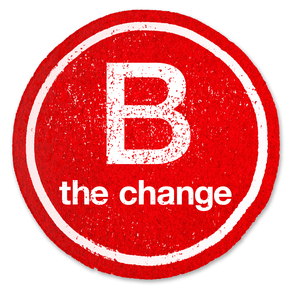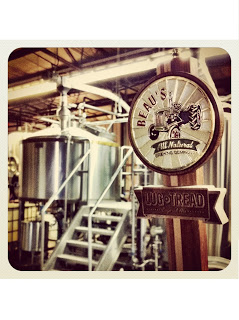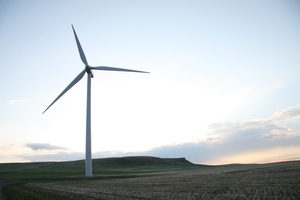According to Beau’s co-founder, Steve Beauchesne, B Corp certification assures their customers in the same way their organic certification does. “Having a third party confirm that you really are what you say you are is very powerful,” he says.
A Comprehensive assessment
Being a B Corp means that a company has been certified by the Pennsylvania-based non-profit B Lab as meeting certain standards of social and environmental performance. “We look at the entire company and their practices,” explains B Lab’s Katie Kerr (B Corp certification is distinct from the benefit corporation form of business that is legislated in many U.S. states).
Any for-profit business can complete the free online assessment, which asks how the business is governed, how it treats its employees and how it affects its community and the environment. If companies score at least 80 out of 200 points, they qualify for certification. Companies must also amend their articles of incorporation to refer to all stakeholders, including employees, the environment and society as well as shareholders.
B Lab confirms the applicants’ claims through a phone conversation and reviews written documentation for some responses. To certify, companies pay a fee that starts at $500 a year for those with annual sales under $1 million. B Corps re-certify every two years.
B Lab does the certification, but the MaRS Centre for Impact Investing has partnered with B Lab to serve as the Canadian B Corps hub, helping Canadian businesses seek certification and network with each other.
So far, 86 companies in Canada have certified, joining nearly 780 other B Corps around the world. It’s not huge, says Joyce Sou, manager for B Corps at MaRS, but it’s growing. These are early days for B Corps—the first were certified in 2007, and the first Canadian B Corp in 2009—but some say it’s a move in the right direction.
What’s in it for social enterprises
“It helps you stand out from the crowd,” says B Lab’s Kerr. She and Sou suggest B Corp status makes your company more appealing to customers, employees, suppliers and investors.
Beau’s All-Natural Brewing Company
“It really does give you the push to do better,” says Beauchesne. “We didn’t do this because we thought it was going to be a big marketing win. This is much more a matter of giving us a good framework for continuing our process of sustainability.”
Another Canadian B Corp, Bullfrog Power, certified in 2011. The green energy provider located in Toronto, Vancouver, Calgary, Ottawa and Halifax promotes sustainable energy, donates a portion of its profits and funds renewable energy projects. Ron Seftel, senior vice-president of operations, says B Corp certification gives Bullfrog a way to describe itself as a business that values the environment and society.
“For us to go through the process and be certified, it was almost a no-brainer,” says Seftel. Still, going through the assessment helped Bullfrog find ways to improve. “It has changed a few things, not dramatically, but all for the better.”
The Challenges
For companies that want to certify, it’s not all smooth sailing.
“The number one challenge is our performance requirements,” says Kerr. “We want to make sure that we’re only certifying those companies that are actually having a strong, positive impact.”
B Lab and MaRS can help businesses improve their scores, but completing the assessment requires effort. “It can be overwhelming—it’s a long questionnaire,” says Sou. B Lab updates the questionnaire every two years based on feedback from users, industry groups and in consultation with B Lab’s independent Standards Advisory Council.
Pincher Creek Wind Farm in Alberta, one of Bullfrog Power’s green electricity sources
“It is quite an onerous thing, which I think you need in any type of certification body,” says Seftel. “There’s probably two or three hundred questions that you have to go through, you have to provide all of the backup for the questions, and they take you through a pretty detailed interview process.”
Beau’s team met several times over five months, sometimes with Joyce Sou, to come up with answers to the questions. “Finding the time to do it was probably the hardest part,” says Beauchesne. “You could go through the assessment in a day, but a lot of the things it asks are things we’d never even considered before—which is also the good side of it.”
Finding the time was a barrier for Jason Garlough, co-founder of Hidden Harvest Ottawa, a social enterprise that supports harvesting and planting of food trees. It’s not a B Corp, although Garlough and co-founder Katrina Siks investigated certification two years ago. They took the recommended step of including stakeholders in their articles of incorporation, but completing the assessment while launching their multi-faceted business was a challenge.
“We were crazy busy,” says Garlough. “And this B Corp certification would have been another thing that we’d have to explain to people. And it had questions like what’s your policy on gender equality, and we didn’t even know what we were going to call ourselves.” Garlough notes some improvements in the B Corp process since they originally considered certification, including additional scrutiny by B Lab, and says they’ll give it another look.
Sou acknowledges that small companies may not have written policies or formal governance structures. B Lab recommends that companies operate for about six months before they certify, although they can still do the online assessment. “What’s really good for brand-new companies is that it’s a really great road map,” says Sou.
Raising the bar
Bob Willard is an author and speaker on the business case for sustainability. His Ontario-based company, The Sustainability Advantage—a B Corp—encourages enterprises to take a more responsible approach to the environment and society. He’s collaborated with The Natural Step, B Lab and others, including on the development of a “gold standard benchmark” that would set the bar at how a truly sustainable company would perform. It’s complementary to, and informed by, B Corp requirements.
B Corp “is a very holistic approach to what running a company would look like if you were trying to provide benefits for the world,” says Willard. “The questions that the B Lab folks are asking companies are a wonderful overview of the dimensions of your operations that you need to pay attention to.”
Checking it out
Canadian social enterprises can explore B Corp through MaRS or on B Lab’s website. Anyone can try out the online assessment, whether or not they’re interested in certifying.
For Bullfrog Power and others, the effort to be a B Corp is worth it. “We believe that we’re at the leading edge of how business needs to transform itself over the next decades—that it can’t just be about consumption of products and profits,” says Seftel. “It all just made sense to be a part of that community.”
*B Corp certification is distinct from the benefit corporation form of business that is legislated in many U.S. states.
Denise Deby is a freelance writer and program management and evaluation consultant who specializes in social, environmental and international issues. You can find her at denisedeby.wordpress.com.




